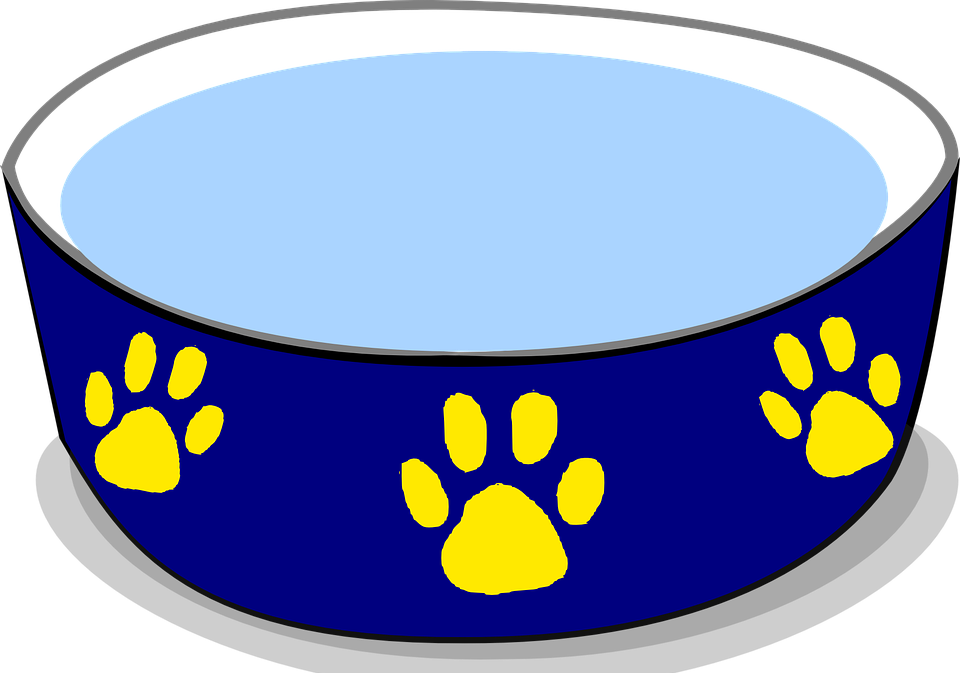This comprehensive guide delves into the question of whether dogs can eat tuna, exploring the potential benefits and risks associated with this popular seafood. We will cover the nutritional value of tuna, examine the potential dangers, and provide practical tips for ensuring your dog's safety when considering tuna as a treat or occasional dietary addition.
Part 1: The Nutritional Value of Tuna for Dogs

Tuna, a lean source of protein and omega-3 fatty acids, can offer potential benefits for dogs. However, it is crucial to understand that these benefits should be weighed against the potential risks before offering tuna to your canine companion.
1.1 Protein Powerhouse: Building Strong Muscles
Tuna is a rich source of high-quality protein, which is essential for building, maintaining, and repairing muscle tissue in dogs. Protein plays a vital role in numerous bodily functions, including the production of enzymes, hormones, and antibodies.
1.2 Omega-3 Fatty Acids: Promoting a Healthy Coat and Brain Function
Tuna contains omega-3 fatty acids, specifically EPA and DHA, which are known to support healthy skin, a shiny coat, and cognitive function in dogs. Omega-3 fatty acids are also known to reduce inflammation, which can benefit dogs with joint problems or allergies.
1.3 Other Essential Nutrients: Supporting Overall Health
Tuna also provides other essential nutrients that contribute to your dog's overall health, including:
- Vitamin D: Promotes bone health by aiding in the absorption of calcium. It also supports healthy immune function and muscle function.
- Selenium: An antioxidant that supports immune function, protecting cells from damage caused by free radicals. Selenium is also important for thyroid hormone production.
- Niacin: Important for metabolism and energy production, aiding in the conversion of food into energy. Niacin also plays a role in DNA repair and healthy nerve function.
Part 2: Potential Risks of Feeding Tuna to Dogs

While tuna can offer nutritional benefits, it also presents potential risks that should be carefully considered.
2.1 Mercury Contamination: A Serious Threat to Your Dog's Health
Tuna, particularly larger varieties like albacore, can contain high levels of mercury, a heavy metal that can be toxic to dogs. Mercury accumulation can lead to neurological damage, affecting the central nervous system, kidneys, and liver. The effects of mercury poisoning can be subtle at first, but can eventually lead to tremors, seizures, blindness, and even death.
2.2 Digestive Issues: An Underestimated Threat to Canine Digestion
Tuna, especially in large quantities, can cause digestive upset in dogs, leading to vomiting, diarrhoea, and abdominal discomfort. This is due to the high protein content and the presence of certain compounds in tuna that can be difficult for dogs to digest.
2.3 Salt Content: A Salty Surprise That Can Harm Your Dog
Canned tuna often contains high levels of salt, which can be detrimental to a dog's health, potentially leading to dehydration, high blood pressure, and kidney problems. High sodium intake can also contribute to cardiovascular issues, especially in older dogs.
Part 3: Tuna Safety Guidelines for Your Dog

To minimise the risks associated with tuna consumption, follow these safety guidelines:
3.1 Choose Canned Tuna Over Fresh: A Safer Option
Opt for canned tuna packed in water or oil, avoiding tuna packed in brine or with added seasonings, which can be high in sodium. Canned tuna is generally more readily available and easier to control the salt content.
3.2 Limit Tuna Intake: Moderation is Key
Feed tuna to your dog only as an occasional treat, never as a regular part of their diet. A small piece, no larger than a thumbnail, should be sufficient.
3.3 Avoid Tuna for Puppies and Pregnant or Lactating Dogs: Protecting the Vulnerable
Puppies, pregnant, and lactating dogs are particularly vulnerable to mercury toxicity, so avoid giving them tuna altogether. Their developing systems are more susceptible to the harmful effects of mercury.
3.4 Consult Your Vet: Seeking Expert Advice
Before offering tuna to your dog, discuss it with your veterinarian, especially if your dog has any pre-existing health conditions. Your vet can assess your dog's individual needs and advise on appropriate tuna consumption.
Part 4: Tuna Alternatives for Your Dog
If you're seeking a healthy, protein-rich alternative to tuna, consider these options:
4.1 Salmon: A Healthy Choice Rich in Omega-3s
Salmon, rich in omega-3 fatty acids and protein, is a good alternative to tuna. Choose wild-caught salmon whenever possible, as it tends to have lower levels of contaminants compared to farmed salmon.
4.2 Chicken: A Budget-Friendly Option Packed with Protein
Chicken, a readily available and affordable source of protein, provides essential nutrients for dogs. Choose lean cuts of chicken and cook it thoroughly to avoid any potential bacteria contamination.
4.3 Turkey: A Lean Protein Source with Less Fat
Turkey is a lean protein source, lower in fat compared to chicken, making it a suitable choice for dogs. Turkey is also a good source of niacin and selenium.
Part 5: Recognising Tuna Toxicity in Dogs
While tuna toxicity is rare, it's essential to recognise the symptoms:
5.1 Early Signs: Be Alert for Subtle Changes
- Loss of appetite: Your dog may show disinterest in food or refuse to eat altogether.
- Lethargy: Your dog may seem unusually sluggish or inactive.
- Vomiting: Your dog may vomit, potentially containing undigested food or liquid.
- Diarrhoea: Your dog may experience loose or watery stools.
5.2 Severe Symptoms: Seek Immediate Veterinary Care if Symptoms Worsen
- Tremors: Your dog's muscles may tremble uncontrollably, indicating neurological involvement.
- Seizures: Your dog may experience convulsions or seizures, a serious sign of mercury poisoning.
- Loss of coordination: Your dog may have difficulty walking or maintaining balance.
- Blindness: Your dog's vision may be impaired or lost completely, a severe consequence of mercury toxicity.
5.3 Prompt Veterinary Attention: Don't Delay
If you suspect tuna toxicity, contact your veterinarian immediately. Prompt action can significantly improve your dog's chances of recovery. Your vet can assess your dog's condition, provide appropriate treatment, and advise on further steps to ensure your dog's well-being.
Part 6: FAQs: Your Tuna-Related Questions Answered
6.1 Can dogs eat tuna in oil?
Canned tuna packed in oil is generally acceptable for dogs, but it's best to opt for oil-packed tuna in water to minimise fat intake. Choose tuna packed in water if you are concerned about calorie intake or your dog is prone to weight gain.
6.2 Can dogs eat raw tuna?
Raw tuna can carry parasites and bacteria harmful to dogs, so it's best to avoid feeding raw tuna to your dog. Always cook tuna thoroughly to kill any potential pathogens.
6.3 Is tuna good for dogs' bones?
Tuna contains Vitamin D, which is essential for bone health. However, it's important to note that a balanced diet, including other sources of calcium, is crucial for strong bones.
6.4 Can tuna cause allergies in dogs?
While not common, some dogs may develop allergies to tuna. Watch for symptoms like itching, hives, or digestive upset if you introduce tuna to your dog's diet. If you suspect an allergy, discontinue tuna and consult your vet.
6.5 Is it safe to give tuna to my dog once a week?
While a small amount of tuna once a week may seem harmless, it's best to err on the side of caution. Mercury accumulation can occur over time, so it's advisable to limit tuna intake.
6.6 What is the best type of tuna for dogs?
The safest type of tuna for dogs is canned tuna packed in water. Avoid tuna packed in brine or with added seasonings, as these can be high in sodium.
6.7 How much tuna can I give my dog?
The amount of tuna you can give your dog depends on their size and weight. A general guideline is to limit tuna to a small piece, no larger than a thumbnail, as an occasional treat.
6.8 What should I do if my dog eats tuna and gets sick?
If you suspect your dog has eaten tuna and is showing signs of illness, contact your veterinarian immediately. They can advise on the best course of action and provide appropriate treatment.
Everyone is watching
-

Can Dogs Eat Bananas? A Guide to Safe Treats
DOGS & PUPPIESThis comprehensive guide will delve into the world of canine nutrition, focusing on the popular question: can ...
-

Can Dogs Eat Oranges? (Is It Safe or Toxic?)
DOGS & PUPPIESThis article delves into the question of whether dogs can safely consume oranges. We'll explore the nutrition...
-

Can Dogs Eat Grapes? The Shocking Truth About This Fruit
DOGS & PUPPIESThis article delves into the controversial topic of grapes and dogs, exploring the potential dangers associate...
-

Why Do Dogs Eat Poop? Understanding Coprophagia in Dogs
DOGS & PUPPIESThis article delves into the perplexing phenomenon of coprophagia, the act of eating faeces, in dogs. We explo...
-

Can Dogs Eat Shrimp? A Guide to Safety and Risks
DOGS & PUPPIESThis comprehensive guide dives into the world of shrimp and dogs, exploring the potential benefits and risks a...
